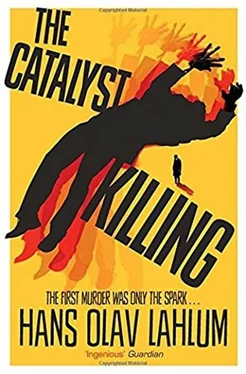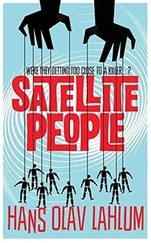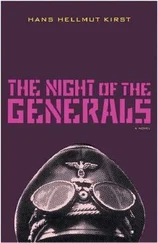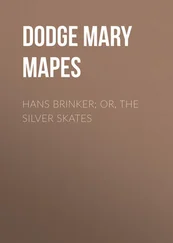My first impression was that he was relatively calm. His jet-black eyebrows were even bushier than I had imagined, and his face was unexpectedly controlled for the moment. He nodded briskly at a chair in front of his desk and when I held out my hand, gave it a firm, equally brisk shake. He had a pipe in the corner of his mouth and his eyes followed my every movement as I sat down.
I started by introducing myself and the case in brief. He nodded and replied curtly that he was of course familiar with it. I did not venture to ask him how. Instead I got straight to the point and asked if he could tell me about Marie Morgenstierne and the rest of the circle around Falko Reinhardt.
The head of the police security service was, as expected, well prepared. His answer was brief: that they would of course be happy to help with the murder investigation, but that the security service had to follow strict procedures when it came to divulging information. Then he said nothing more.
In answer to my initial question as to whether the police security service had the group under surveillance, he answered, ‘yes, of course.’ When I asked if this was the case both before and after Falko Reinhardt had disappeared, he replied, ‘yes, of course.’
Bryne exhaled some smoke from his pipe following these two succinct replies and paused for thought. Then he added, with a bit more vigour: ‘The greatest threat to our country is still from the supporters of Moscow communism. The second greatest threat is probably the Peking communists. We would therefore clearly be neglecting our duty to our country and its people if we did not keep our eye on a group that was trying to worship both Moscow and Peking at the same time.’
When I asked whether the police security service had at any point received information from members of the group, Asle Bryne replied brusquely that he could under no circumstances comment on that. He added that the security service was dependent on getting information from a range of different sources, and that it could have disastrous consequences if these sources were identified and at risk of being made public.
I permitted myself to remind him that this was after all a murder inquiry and for the present would only involve one policeman and some confidential information.
No more was needed for Asle Bryne’s temperament to make an appearance. He suddenly leaned forward in his chair and launched into a lengthy tirade about the security service’s responsibilities, the essence of which was that they were the country’s only hope in the fight against communist infiltration and Soviet occupation, and that they therefore needed room for manoeuvre without any interference from either politicians or the other police organs.
I waited until he started to calm down. Then I asked if they had found anything to indicate that this small group of students had contacts abroad, or constituted a threat to the status quo in Norway. This unleashed another almost equally violent eruption behind the cloud of smoke. The fact that they did not always uncover something in the short term should not fool anyone into relaxing their focus on potentially violent terrorist groups. Furthermore, it was better that ten innocent groups were kept under surveillance than that they did not watch the one group that might prove to be a real threat to society.
I took this as a ‘no’, and quickly carried on when he paused for breath a couple of minutes later. I told him that I fully understood that the security service could not reveal their contacts and that I could see why they had kept the group under surveillance – which could in fact be of great benefit to the investigation. I therefore would dearly like to know what the security service knew about Falko Reinhardt’s disappearance and the murder of Marie Morgenstierne.
Asle Bryne took a couple of deep breaths, nodded – and made an attempt to answer my request. He assured me that as long as one respected the security service’s situation and work methods, they would of course be more than happy to do what they could to help solve any crimes that were under investigation by other police divisions.
As far as the disappearance of Falko Reinhardt was concerned, however, the police security service knew nothing about it and had no information that might be of any help.
Again, when it came to the murder of Marie Morgenstierne, no one from the police security service had been in the vicinity. They had, however, successfully bugged the group’s meeting place in Smestad, and could thus provide a recording of the last meeting that Marie Morgenstierne attended. The meeting had been short, and the security service had not picked up anything of interest from the recording. But if it could be of any help to the murder investigation, they would be able to lend it to the head of investigation for a day or two, in the strictest confidence, and on the condition that the tape was returned within forty-eight hours and that no reference was made to it in public.
He then made a great show of taking the tape out of the desk drawer and placing it on the table between us.
To humour him, I thanked him for his help and assured him that the conditions would be upheld. I then reached for the tape and pulled it over to my side. To my relief, he did not protest.
I casually added that the investigation had brought me into contact with old Nazi circles, and I asked if the security service was familiar with them. Bryne peered out at me from under his great bushy eyebrows, obviously taken aback, and shook his head almost before he had heard the names.
Another long tirade followed, about how he himself had fought against the Nazis during the war, and that ‘now it is the Cold War that is important, my young man, and not the Second World War.’
These old Nazi circles only involved ‘a bunch of random, bitter’ individuals who hardly constituted a threat to anyone but themselves. The security service was of the definite opinion that the focus should now be on left-wing rather than right-wing extremists. In that sense, he added, both the government and the opposition were in agreement with the security service.
I made a blunder just before I stood up, when I remarked briefly that there was perhaps no reason to believe that military intelligence might know any more. Asle Bryne leaned even further forward across the desk and boomed that there was absolutely no reason to believe that military intelligence might know more than the security service about anything. In fact, military intelligence with its incompetent management was perhaps the second greatest threat to the security of the Norwegian people after communism. It was incomprehensible that neither the government nor the Storting had taken the matter in hand and transferred all surveillance to the police security service.
Asle Bryne was struggling to control himself, and I realized that a far more serious outburst was now imminent. I was genuinely concerned that he might have a heart attack in front of my very eyes. When he eventually stopped for breath again, I gave a disarming shrug and assured him that I was extremely happy with the help the police security service had given so far and did not really think that military intelligence would know any more about the matter. He sat in silence after this, and we then shook hands briefly before I left.
I suspected that the security service knew more than they were willing to tell me. But I was curious to see what the recording from Marie Morgenstierne’s last meeting might reveal, and relieved to be able to take it with me when I left the room.
Patricia listened intently to my report of the Valdres trip and my meeting with the head of the police security service. When I finished by telling her about the tape, she nodded with cautious appreciation and pointed at the stereo player. I personally was very keen to know what might be on the tape, so quickly put it on.
Читать дальше












